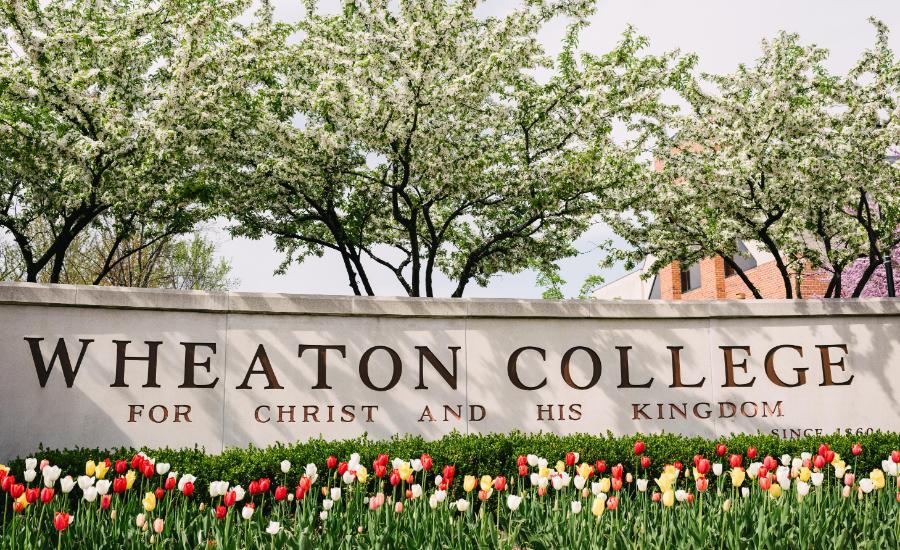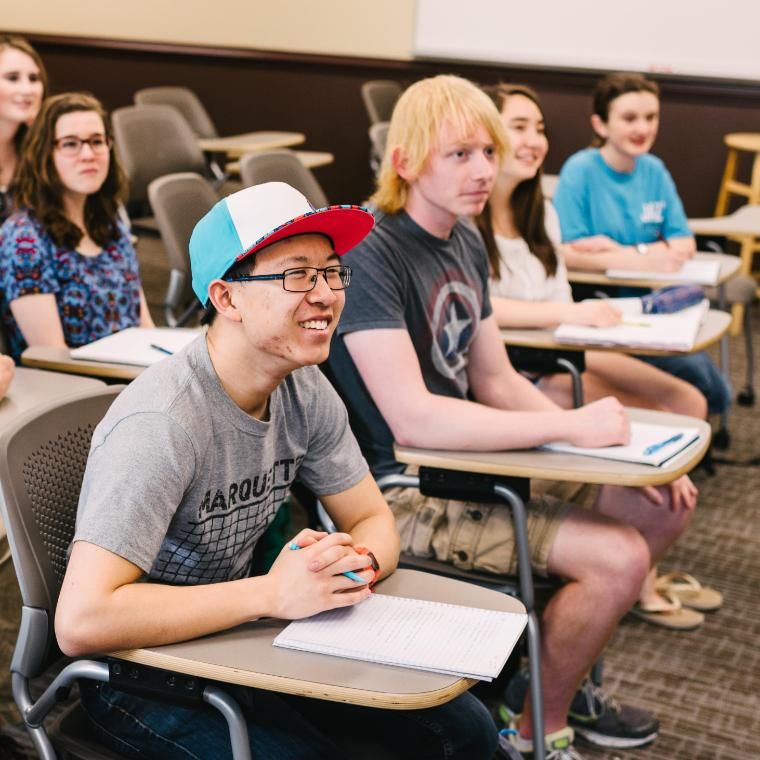The Liberal Arts at Wheaton College

This page provides a brief rationale for Christ-centered undergraduate education in the liberal arts and sciences. It represents my best attempt, as President, to articulate the distinctive excellence of a Wheaton education.
- Philip Ryken, President
The Intrinsic Value of Liberal Learning
Wheaton College students and faculty pursue learning out of love for Jesus Christ and the world that he has made. Believing that all truth is God’s truth, we seek to cultivate curiosity about creation, a love for great books, an appetite for truth and beauty, a lifelong passion for the life of the mind, the capacity to communicate the gospel across cultures, and the spiritual and intellectual virtues that promote wisdom.
With the apostle Paul, we believe that all things were created through Christ and for Christ, in whom all things hold together (Colossians 1:15-17). Therefore, learning is a form of worship for us. As we explore the wonders of the world through the natural sciences and ponder the mysteries of the human condition in the humanities and social sciences, we come to a deeper knowledge and greater love of our Creator-God and Savior-Lord.
We also come to a wiser knowledge of ourselves as we discover the particular gifts and unique passions God has given to each of us. For learning to have its full effect on the mind, body, and soul, it must not be narrowly directed to a particular career, but widely oriented to forming the whole person for all of life’s vocations. A Wheaton education is not designed to prepare students for a mere livelihood, but for a good and meaningful life. To this end, we require our students to learn broadly while at the same time inviting them to study more deeply in the discipline(s) they love the most. By God’s grace, in doing this they become more fully the kingdom citizens that God has designed and called them to become.
The Instrumental Benefits of a Liberal Arts Education
In addition to its intrinsic value, a Christ-centered liberal education also has many practical benefits that most graduates reap over a lifetime of kingdom service and gospel witness. These include but are not limited to:
- Highly marketable skills that perennially lead the list for prospective employers, such as analytical reading, critical thinking, persuasive oral communication, effective writing, and innovative, collaborative problem solving
- Strong academic credentials that open doors to top graduate programs, where a majority of our alumni go on to receive the more specialized training of a professional education
- A strong foundation in moral virtue and ethical reasoning that builds character, fosters integrity, strengthens relationships, promotes stewardship, and earns respect outside as well as inside the church
- A breadth of preparation that gives graduates the versatility to excel in a wide variety of callings over a lifetime of work and ministry, including their service in jobs that have yet to be created
- Whole person development that enables graduates to maximize their God-given talents and provide exceptional leadership “For Christ and His Kingdom” at home, at church, in the marketplace, and in the wider world
Our History
From its founding, Wheaton has prized an educational tradition that began in ancient Greece and was brought under the lordship of Jesus Christ in the early centuries of the church. “Liberal” comes from the Latin term liber, meaning “free.” Liberal education originally gave the citizens of a democracy (a rare privilege when slavery was common) the moral and intellectual preparation they needed to serve as leaders of a free society. For Christians, who belong to an eternal dominion, this ideal was expanded to include preparation for free, faithful, and fruitful citizenship in the kingdom of God.
Our Curriculum
Wheaton College carries this noble tradition forward into the 21st century through a rigorous and capacious general education curriculum that affords every student broad exposure to foreign language, art, music, literature, mathematics, philosophy, history, natural and social science, and also through dozens of academic majors that are taught in accordance with classical and Christian ideals for liberal education. The core of this curriculum is coursework in Bible and theology that enables students to integrate learning with faith in their other studies and to understand human cultures in Christian perspective. Through the knowledge, skills, and virtues that this curriculum cultivates—as well as through learning experiences beyond the classroom and relationships with gifted, godly faculty members—Wheaton students are educated to become whole persons who glorify God by building the church and benefiting society worldwide.

Read the Purpose of General Education at Wheaton and how it prepares students for a lifetime of apprehending truth.